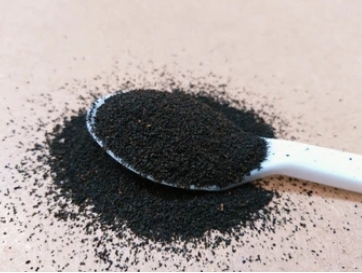
Tea ash is the residue of tea after ashing by burning at 550°C. Its main composition is the oxides of mineral elements, most of which are nutrients. According to the solubility of ash in water or 10% hydrochloric acid, it is divided into water-soluble ash, water-insoluble ash, acid-soluble ash, and acid-insoluble ash. Under normal circumstances, the total ash content of tea ranges from 4% to 7.5%, of which water-soluble ash is not less than 50% of the total ash. Tea ash as one of the main physical and chemical indicators of various tea product standards; its content is directly related to the quality and health of tea. The test of tea ash has both the significance of quality identification and health determination significance. In the quality control of tea trade at home and abroad, tea ash is usually a mandatory inspection item.
As a recognized leader in tea testing, Lifeasible can develop the best tea ash testing solutions to help customers meet the tea ash limit indicators in various standards.
| Tea Ash Testing Items | Tea Ash Testing Content | Tea Ash Testing Significance | Tea Ash Testing Methods |
| Total Ash Testing | Oxide of mineral elements | High total ash content is a sign of tea being old and of poor quality. If the total ash content of tea is too high, it indicates that the tea may be mixed with sand, dust, or other substances. |
|
| Water-Soluble Ash Testing | Most are potassium, sodium, calcium, magnesium, and other oxides and soluble salts. | Water-soluble ash accounts for a large proportion of the total ash in tea, symbolizing good tea quality. | |
| Acid Insoluble Ash Testing | Most are stained with sediment, including silica, which originally existed in the tea tissue. | The high content of acid-insoluble ash is a sign of excessive inclusions of mineral elements, indicating the poor quality of tea. | |
| Water-Soluble Ash Alkalinity Testing | The filtrate of water-soluble ash is titrated with a hydrochloric acid standard solution using methyl orange as an indicator. | It can prevent the addition of other substances or adulteration in the tea refining process, and generally, the alkalinity content of water-soluble ash of tea is controlled within the range of 1%~3%. |
Our tea ash testing is usually done only for total ash items, but if you have other requirements, we will also provide standard methods to determine other items accurately. Our services are designed to promote tea to meet the ash limits in various standards, to further improve tea hygiene, to enhance tea quality, to protect human health, and to promote tea export. If you are interested in our solutions, please contact us for technical consultation and quotation.
Lifeasible has established a one-stop service platform for plants. In addition to obtaining customized solutions for plant genetic engineering, customers can also conduct follow-up analysis and research on plants through our analysis platform. The analytical services we provide include but are not limited to the following:
Get Latest Lifeasible News and Updates Directly to Your Inbox
Adaptive Evolutionary Mechanism of Plants
February 28, 2025
Unraveling Cotton Development: Insights from Multi-Omics Studies
February 27, 2025